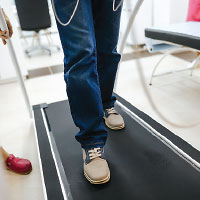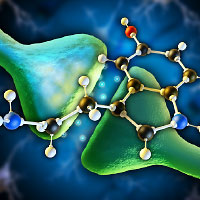Journal Digest: CBT With Cardiac Rehab, PMDD Neurochemistry, and More
Antidepressants May Induce Resistance to Antibiotics

Antidepressants can induce bacterial resistance to antibiotics, according to a report in PNAS.
“While antibiotics are acknowledged as the major driver of increasing antibiotic resistance, little attention is paid to the contribution of antidepressants in this process,” wrote the study authors from the University of Queensland and colleagues.
For the study, the researchers exposed E. coli bacteria to five commonly prescribed antidepressants: agomelatine, bupropion, duloxetine, escitalopram, and sertraline—each at five different concentrations (0.1, 1, 10, 50 and 100 mg/ml) for 60 days.
After 60 days, exposure to all antidepressants was associated with increased growth of antibiotic-resistant bacteria at significantly faster rates compared with no exposure to antidepressants. Additionally, antibiotic resistance developed faster at higher doses.
“Strikingly, the antidepressants sertraline and duloxetine at clinically relevant concentrations in colon (e.g., 50 mg/L) caused an effect after only 1 [day] of exposure,” the authors noted.
After examining expression of genes and proteins in these bacteria, the researchers concluded that enhanced production of reactive oxygen molecules following exposure to antidepressants was associated with increased antibiotic resistance.
“[O]ur findings highlight the need to re-evaluate the antibiotic-like side effects of antidepressants,” the researchers wrote.
Wang Y, Yu Z, Ding P, et al. Antidepressants Can Induce Mutation and Enhance Persistence Toward Multiple Antibiotics. Proc Natl Acad Sci USA. 2023; 120(5): e2208344120.
Poor Insight May Increase Risk of Relapse for Psychotic Depression

Some research has shown that people with psychotic depression who have poor insight about their delusions are less likely to achieve depression remission. A report in the Journal of Affective Disorders now suggests such poor insight does not increase the risk of relapse if remission is achieved.
Investigators at the University of Toronto and colleagues reviewed data from the STOP-PD II trial, which evaluated the efficacy of a combination of sertraline and olanzapine versus sertraline only for treating psychotic depression in adults. STOP-PD II had three phases: acute, stabilization, and randomized continuation.
For the acute phase, adults with psychotic depression received a combination of sertraline (150-200 mg/d) and olanzapine (15-20 mg/d) for up to 12 weeks. Participants who achieved remission (absence of delusions and hallucinations) were then eligible to enroll in an eight-week stabilization phase, where they continued on the same medication regimen. Participants who remained in remission during the stabilization phase were then randomized to continue taking the sertraline-olanzapine combination or switch to sertraline plus placebo; these participants were followed for up to 36 weeks. Patient insight into delusions was assessed at the beginning and end of the stabilization phase.
A total of 126 participants entered the final phase of the trial; after 36 weeks, 67 remained in remission, 47 relapsed, and 12 left the study. The investigators found that neither the degree of insight at the start of follow-up nor the change in insight score during the stabilization phase of the trial was associated with relapse risk.
“Although unanticipated, this finding can provide reassurance to clinicians that residual or reemergent insight impairment following acute treatment does not preclude patients from sustaining remission of psychotic depression,” the investigators wrote.
Song J, Mulsant BH, Sanches M, et al. Residual or Re-emergent Impaired Insight Into Delusions Following Remission is Unrelated to Later Relapse During a Randomized Clinical Trial of Continuation Pharmacotherapy for Psychotic Depression - The STOP-PD II Study. J Affect Disord. 2023; 325: 29-34.
Adjunct CBT Can Boost Cardiac Rehabilitation Outcomes

Adding a few sessions of cognitive-behavioral therapy (CBT) to regular cardiac rehabilitation may reduce depression and anxiety symptoms in patients with heart disease. These findings come from a clinical study published in European Heart Journal.
For the study, researchers at Bispebjerg and Frederiksberg Hospital in Copenhagen enrolled 147 adults (average age 54) who were recently diagnosed with coronary artery disease or valvular heart disease and were experiencing psychological distress (defined as a score of 8 or higher on the Hospital Anxiety and Depression Scale, or HADS). All participants received eight weeks of cardiac rehabilitation, which consisted of twice weekly exercise sessions along with education about heart disease, managing risk factors, dietary counseling, and more. Half of the participants also received five, two-hour sessions of group CBT delivered by a trained cardiac nurse.
After three months, HADS scores (which averaged 17 at baseline) dropped by eight points among the participants who received CBT in combination with cardiac rehabilitation; in the group receiving cardiac rehabilitation only, these scores dropped by four points. The differences between the two groups remained after six months.
The adults who received CBT also reported greater improvement in emotional quality of life at six months compared with those receiving cardiac rehabilitation alone. The adults in both groups reported similar physical quality of life.
After 12 months, fewer adults receiving CBT were readmitted to a hospital for a cardiovascular issue than those receiving rehabilitation alone (25% vs. 49%, respectively).
“Brief group cognitive-behavioral therapy delivered by cardiac nurses may reduce psychological distress and morbidity in the short term, and may be integrated with existing [cardiac rehabilitation] programmes,” the authors concluded.
Holdgaard A, Eckhardt-Hansen C, Lassen CF, et al. Cognitive-Behavioural Therapy Reduces Psychological Distress in Younger Patients With Cardiac Disease: A Randomized Trial. Eur Heart J. 2023; 44(11):986-996.
Autism Does Not Appear to Accelerate Cognitive Aging

Given the cognitive symptoms associated with autism spectrum disorder (ASD), some researchers have hypothesized that adults with ASD may be prone to accelerated cognitive aging. A longitudinal study appearing in Psychiatry Research now questions this theory.
“Even on cognitive domains where autistic adults generally seem to experience more difficulties compared to non-autistic adults (fluency, theory of mind), and on tasks where longitudinal changes were most prominent across groups (response speed, fluency, inhibition, verbal memory) no significant differences in cognitive change between those with and without an autism diagnosis were observed,” wrote the authors from the University of Amsterdam.
The study involved adults aged 25 to 85 years, including 128 with ASD and 112 without ASD. These participants received a cognitive test battery multiple times over an average of 3.5 years. The tests assessed 15 different cognitive variables.
Although the adults with ASD self-reported more cognitive difficulties at baseline, the researchers found age-related changes in cognition appeared similar in adults with and without ASD.
“[D]ifferences in development in various cognitive domains observed in the first stages of life of autistic individuals do not seem to persist or retrace in later stages of life,” the authors wrote. Still, they cautioned that “careful interpretation of the current conclusions is essential, and more longitudinal research is key to understand cognitive decline in older autistic adults precisely, and more generally throughout the autistic population.”
Torenvliet C, Groenman AP, Radhoe TA, et al. A Longitudinal Study on Cognitive Aging in Autism. Psychiatry Research. 2023; 321: 115063.
PMDD Symptoms May Be Tied to Serotonin Uptake

A brain imaging study suggests that women with premenstrual dysphoric disorder (PMDD) have more unused serotonin transporters during their premenstrual cycle than women without the disorder. This study, which was published in Biological Psychiatry, also showed that the number of available transporters correlated with the severity of depressive symptoms in the women with PMDD.
Investigators at the Max Planck Institute for Human Cognitive and Brain Sciences in Leipzig, Germany, and colleagues conducted PET scans of 30 women with PMDD and 29 matched women without this disorder. All participants were scanned during both their premenstrual phase and preceding periovulatory phase and they completed mood and irritability assessments shortly before each scan.
During periovulation, both groups of women showed similar levels of occupied versus available serotonin transporters in the midbrain. During the premenstrual phase, however, the number of available serotonin transporters increased by 18% in women with PMDD (indicating less serotonin movement across neural synapses) while it decreased by 10% in women without PMDD. Women with PMDD who experienced the greatest changes in serotonin transporter availability between the premenstrual and periovulatory phases also reported the greatest increases in depressive symptoms. There was no association between transporter availability and irritability scores.
“These data suggest cycle-specific dynamics with increased central serotonergic uptake followed by extracellular serotonin loss underlying the premenstrual onset of depressed mood in patients,” the authors wrote. “These neurochemical findings argue for systematic testing of presymptom-onset dosing of selective serotonin reuptake inhibitors or non-pharmacological strategies to augment extracellular serotonin in PMDD.”
Sacher J, Zsido RG, Barth C, et al. Increase in Serotonin Transporter Binding in Patients with Premenstrual Dysphoric Disorder Across the Menstrual Cycle: A Case-Control Longitudinal Neuroreceptor Ligand PET Imaging Study. Biol Psychiatry. January 18, 2023. Online ahead of print.
Psychotrauma Screen Trauma Screen Adapted for Use in Iran

Trauma is a global issue and a public health concern. A multinational team led by investigators at Iran’s Kermanshah University of Medical Sciences has created and tested a Persian version of the Global Psychotrauma Screen (GPS)—a brief self-report instrument that screens for a range of trauma-related psychological symptoms.
The GPS is a 22-item yes/no screen that assesses symptoms of posttraumatic stress disorder (PTSD), depression, anxiety, sleep problems, and dissociation, as well as risk and protective factors.
“Kermanshah city, located in the western part of Iran, has experienced multiple wars over the past eight years, involving both airstrikes and ground battles. The area is also one of the most earthquake-prone areas of the world,” the investigators wrote in BMC Psychiatry. “Although several [PTSD] instruments exist in Iran, there is no brief screening tool available that assesses the wide range of psychological reactions to a potentially traumatic event.”
The team first constructed a Persian-language version of the GPS with the aid of psychotrauma experts and 30 lay volunteers. The proposed screen was then tested alongside the PTSD Checklist for DSM-5 (PCL-5) and the General Health Questionnaire (GHQ) in 800 adults who had lived through the 2017 Kermanshah earthquake.
A comparison of the three assessments suggested that the Persian GPS was consistent and reliable at measuring participants’ trauma symptoms, and that a score above nine suggests a possible PTSD diagnosis. They also found that 52% of the respondents scored above nine, highlighting the high degree of trauma in the region. ■
Salimi Y, Hoeboer C, Motevalli Haghi SA, et al. Trauma and its Consequences in Iran: Cross-Cultural Adaption and Validation of the Global Psychotrauma Screen in a Representative Sample. BMC Psychiatry. 2023; 23(1): 65.



